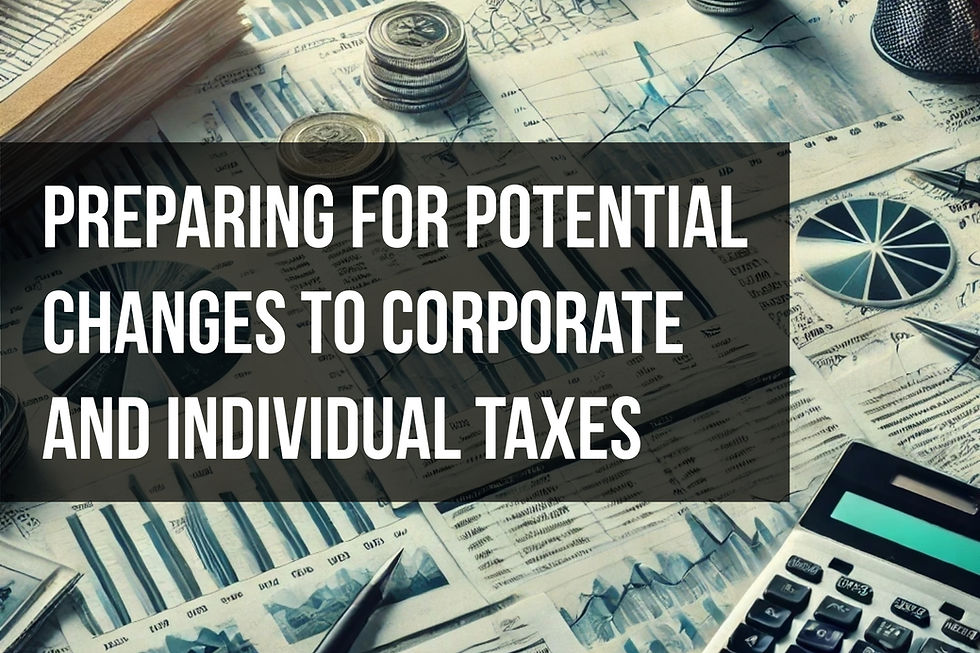- Talley LLP

- Oct 12, 2024
- 2 min read
Updated: Nov 12, 2024

In less than 30 days, Americans will elect the politicians who will set policy for the next two years in Congress and four years at the White House. While tax policy may not be a major focus during the campaign, it will become one of the most critical challenges for those taking office in January, especially for business leaders concerned about potential tax changes.
The Tax Cuts and Jobs Act (TCJA) of 2017 brought significant changes to the tax landscape, including broadening the tax base for businesses and individuals, lowering the corporate tax rate, and providing temporary individual tax cuts. While corporate tax changes were designed to be permanent, most individual tax cuts are set to expire at the end of 2025. This impending expiration has been dubbed "Tax Armageddon" due to the financial stakes involved.
According to estimates, renewing the expiring provisions for individuals in a deficit-neutral manner would require Congress to find over $4 trillion in spending cuts or tax increases over the next decade. Given the size of this figure, it is highly unlikely that Congress will be able to achieve it through spending cuts alone, as discretionary spending, including defense, totals around $1.7 trillion for fiscal year 2024. Programs like Social Security and Medicare are generally seen as off-limits for cuts.
Similarly, identifying politically viable tax increases to offset the $4 trillion gap is also unlikely. Doing nothing would result in higher taxes for most American families starting in 2026, so Congress will need to take action to address the looming tax cliff. If Congress chooses to extend some or all of the TCJA provisions, there could be changes to the corporate tax rate or the tax base to generate revenue.
Businesses face additional uncertainty due to changes in Congress, including the departure of lawmakers who were familiar with the pre-2017 tax system. Additionally, there has been a shift in political priorities, with more focus on small businesses than large corporations. This change in dynamics may make it harder to predict how Congress will address tax policy in 2025.
For corporate leaders, the 2025 tax debate is expected to be more defensive than the push for lower corporate taxes in 2017. Business executives should start assessing the potential impact of various tax scenarios on their companies and ensure that all internal stakeholders are educated about the stakes involved. Finance leaders need to prepare for the possibility of higher corporate taxes or a broader tax base as Congress works to address the expiring provisions of the TCJA.
As the election approaches and tax policy moves to the forefront in 2025, the potential impacts on both businesses and individuals will be significant. Corporate leaders should prepare for the far-reaching consequences of the upcoming tax debate.
Talley's team of tax professionals provide comprehensive tax compliance and consulting services so you can preserve, enhance, and pass on your assets and wealth to the next generation. We welcome the opportunity to discuss the current options available for you. For more information, contact us today.



Comments